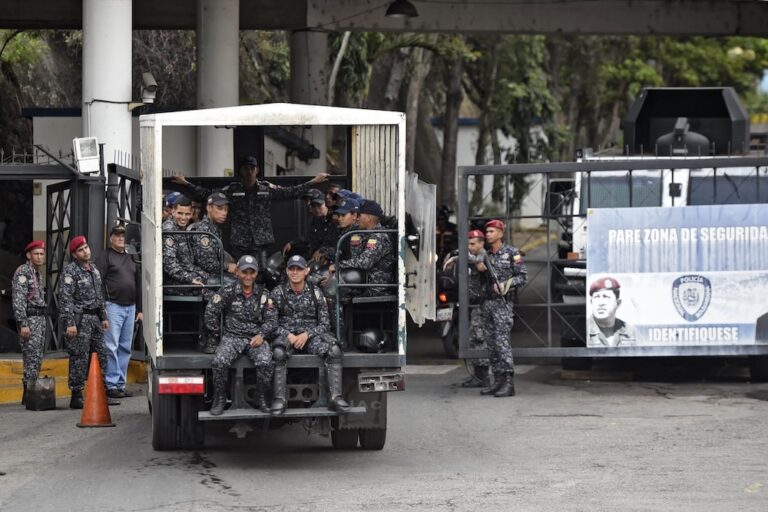The request for a criminal investigation was issued based on comments made by businessman Noel Álvarez on RCTV Internacional's "La Entrevista" programme.
(IPYS/IFEX) – On 21 January 2010, Diosdado Cabello, the Minister of Public Works and Housing and Director of the National Telecommunications Commission (CONATEL), asked the Attorney General’s Office to open a criminal investigation against the RCTV Internacional television station, the host of the television station’s “La Entrevista” programme, journalist Miguel Ángel Rodríguez, and the president of the Venezuelan Federation of Chambers of Commerce (Fedecámaras), Noel Álvarez.
The request was issued following a statement made by Álvarez on the 14 January broadcast of “La Entrevista”. According to Cabello, the businessman’s comment that “the solution in Venezuela should come from the armed forces” was a call for a coup d’état. Álvarez said the comment was only a form of wordplay.
The Department for Scientific, Penal and Criminal Investigations (CICPC) has also initiated a parallel investigation, regarding the same case, against Rodríguez, the host of “La Entrevista”, accusing him of rebellion, insurrection and instigating others to commit crimes.
Cabello said that he had an obligation, when faced with the facts, to request a criminal investigation into the programme, the interviewer and the interviewee.
The minister also said that “certain media outlets” are used to manipulate the public.
IPYS condemns the opening of this investigation as it criminalises freedom of the press and freedom of opinion.
Meanwhile, on 28 January, RCTV International representatives asked the Constitutional Tribunal of the Supreme Court of Justice (TSJ) to overturn a CONATEL decision that resulted in the television station’s broadcasts via cable operators being taken off the air.
Marcel Granier, the president of 1BC Enterprises, which owns the television station, and Oswaldo Quintana, the station’s legal counsel, requested that the Technical Regulations for National Audiovisual Production be invalidated, and, as a consequence, that the television station’s classification as a national audiovisual producer also be annulled.
They also requested that the articles of the Social Responsibility in Radio and Television Law (Ley Resorte) that were used as the basis for the stipulations in the Technical Regulations for National Audiovisual Production be invalidated. The RCTV International representatives said that with these regulations, approved in December 2009, CONATEL operates in violation of article 24 of the Constitution, which states that “no legislative regulation will have a retroactive effect”. The classification of RCTV as a national producer was based on programmes broadcast by the television station during the four months before the regulations were approved.
A request was also filed with the TSJ asking for RCTV Internacional to be allowed to return to cable system broadcasting until the station receives a response to its petitions.
RCTV Internacional was taken off the air in the early hours of 24 January, along with five other television stations, allegedly for failing to comply with the Social Responsibility in Radio and Television Law.
In another related case, on 4 February CONATEL determined that América TV would be allowed to return to broadcasting via the cable system as it cannot be classified as a national audiovisual producer.
In compliance with the Technical Regulations for National Audiovisual Production, on 3 February the station’s representatives submitted the documents required to determine the station’s classification. Under the regulations, América TV was expected to comply with the Social Responsibility in Radio and Television Law, which resulted in the station being taken off the air on 24 January, along with RCTV Internacional and the other four media outlets.
The decision regarding América TV means that the only station still off the air is RCTV Internacional. Diosdado Cabello said during a press conference that “it is becoming late” for RCTV Internacional to present all its documents to CONATEL.


